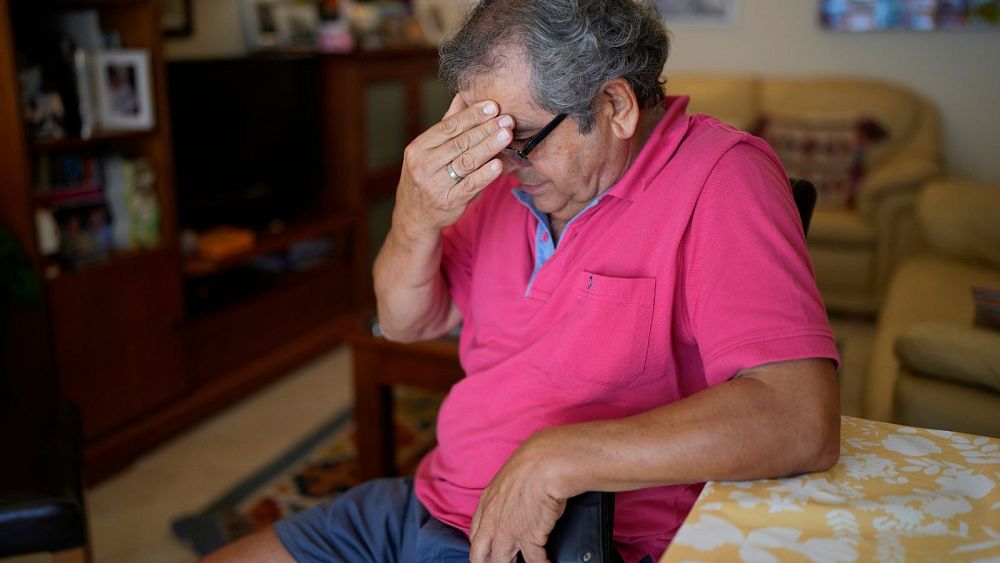
The pontiff is expected to meet victims of historic abuse as he visits Lisbon for an international Catholic youth rally.
During a live television broadcast, the experts reported in February that at least 4,815 boys and girls had been abused since 1950, most aged 10 to 14.
Senior Portuguese church officials had maintained there had been only a handful of cases. Their response was so clumsy victims were inspired to form Portugal’s first survivor advocacy group to press for compensation.
Now, Pope Francis will wade into the quagmire of Portugal’s reckoning with clergy abuse when he arrives in Lisbon next Wednesday to participate in World Youth Day, the international Catholic youth rally.
While there is no mention of the scandal on the pontiff’s official agenda, he is expected to meet with victims.
Portugal is the latest country to confront decades of abuse by priests and cover-ups by bishops and religious superiors.
The hierarchy has flip-flopped over the possible — and unresolved — issue of payment of reparations. It has balked at suspending active members of the clergy named in the report.
Anne Barrett Doyle of BishopAccountability.org, a US group that maintains an online archive on abuse in the Catholic Church, said Portugal’s bishops had expected the independent commission would help them restore trust by revealing the history of abuse and cover-up while allowing them to “apologise, give assurances of reform, and move on.”
“Their plan backfired terribly,” she said. “With its finding of nearly 5,000 victims and its startling claim of accused priests still in ministry, the commission turned out to be more independent than the bishops bargained for.”
Church authorities at first argued possible reparations were a matter for the courts.
Lisbon Cardinal Manuel Clemente and other officials also remarked that under Portuguese law, the perpetrator is liable for any compensation payments — not the institution.
By April, the church had softened its position, saying it didn’t rule out reparations. It promised to “make help available” for victims and said if convicted perpetrators couldn’t pay, the church would. Officials have not elaborated on those plans.
However, Clemente also claimed the Independent Committee for the Study of Child Abuse in the Catholic Church, a group of experts set up by Portuguese church authorities, had handed the church just a list of names of alleged abusers not backed up by evidence. That comment irked the experts, who said they took pains to ground their findings and provide supporting documentation.
Also, church authorities said active clergy named as alleged abusers could be suspended from duties only after due legal process. Officials, under public pressure, later suspended four of the two dozen priests in the report.
Victim speaks out
Abuse victim Antonio Grosso says he was sexually abused at a former religious shelter for boys in Fatima in the 1960s.
He said he and others were so hurt by the church’s response they created a lobby group, called the Silenced Heart Association, to help victims obtain reparations. The group also provides psychological support and pro bono legal aid.
Grosso’s journey has taken him from would-be priest studying as a child at a Portuguese seminary to co-founder of the first church sex abuse victim association in Portugal. As a child, he says, he enjoyed Mass so much that he re-enacted it at home.
But between the age of 10 and 12, studying away from home, Grosso says he was sexually abused first by a priest and later by a Franciscan friar.
For 10 years he never spoke to anyone about what had happened. As a teen, he had episodes of “rage, humiliation, shame,” he says.
Only as a young adult did he begin to broach the subject with friends. He told his girlfriend, who became his wife. They had two daughters.
When Grosso publicly recounted his story in a 2002 magazine interview, having felt encouraged to do so by revelations of church sex abuse emerging around the world, his then 27-year-old daughter Barbara sent him a letter. He has kept it folded up in his wallet for the past two decades. The letter salutes his courage and tells him his daughter is proud of him. Reading it aloud, he tears up.
He feels moved to act now because the church reacted with “contempt” to the torment of victims and is still trying to cover up the truth. He would like to see Pope Francis speak about the issue while in Portugal.
The church in Portugal has apologised for the abuse. It is working with Portugal’s main victims’ support association and is establishing procedures and tailoring its responses to sex abuse in the church. Staff at the World Youth Day are receiving specific training on how to prevent and spot abuse.
The problem, however, extends far beyond Portugal, says Barrett Doyle.
Portugal’s reckoning lags behind what has already happened in the United States, Australia, France and Germany, she said, but is on a par with the church responses in Spain and Poland and most countries in South America, Central America, and Africa.
“In other words, and sadly, the Portuguese hierarchy is not an outlier; it’s representative,” she said.
VDS Kirala